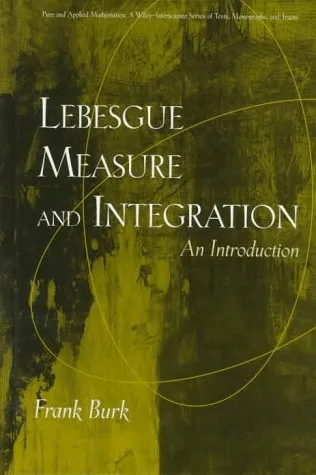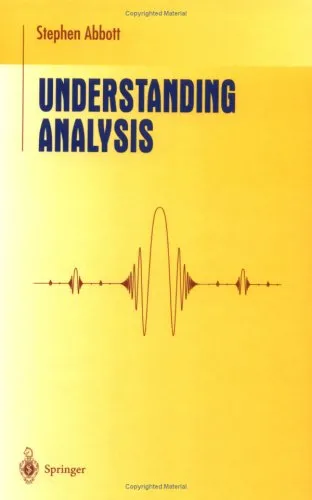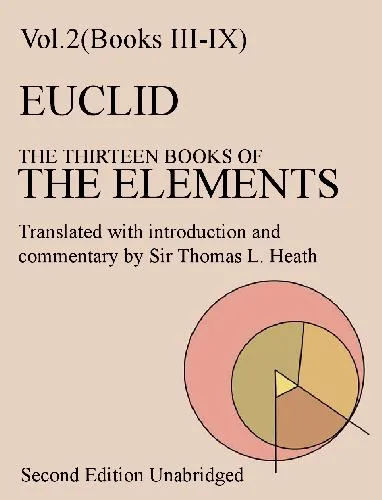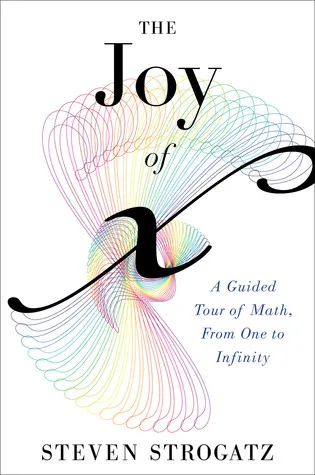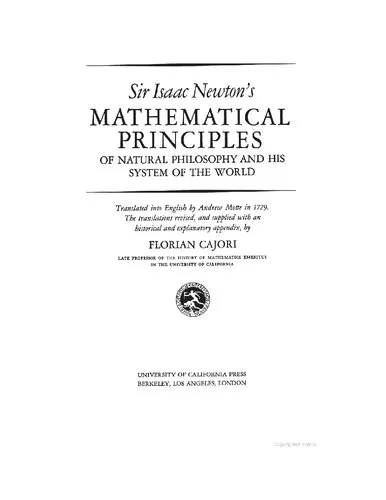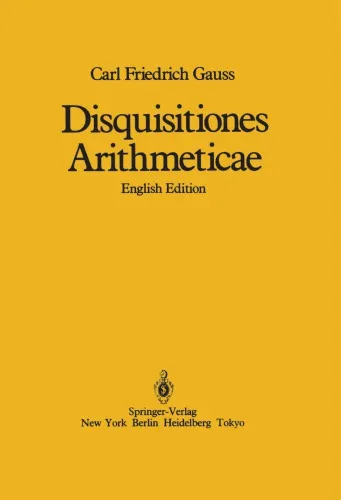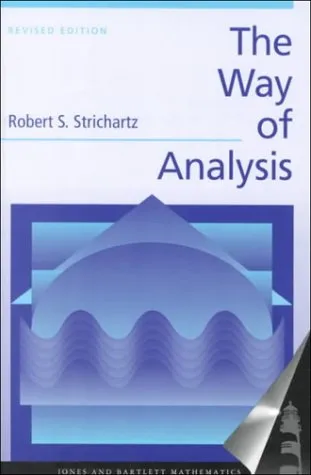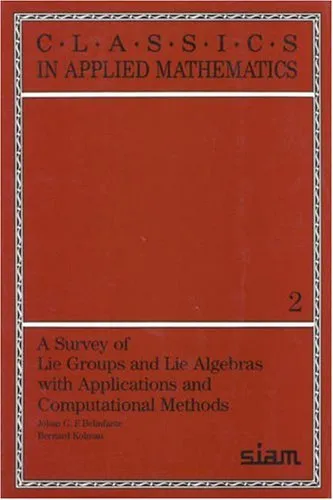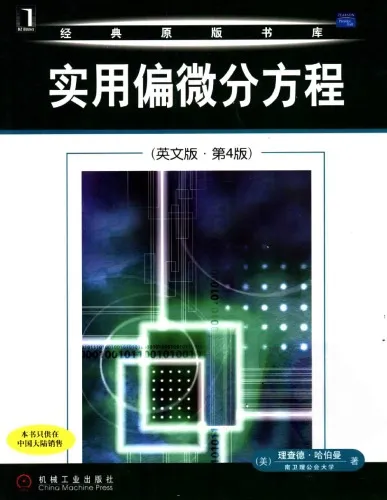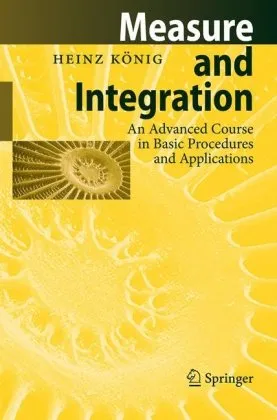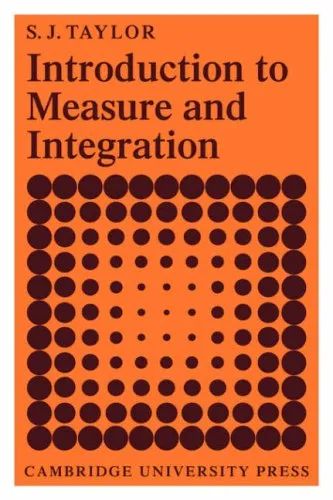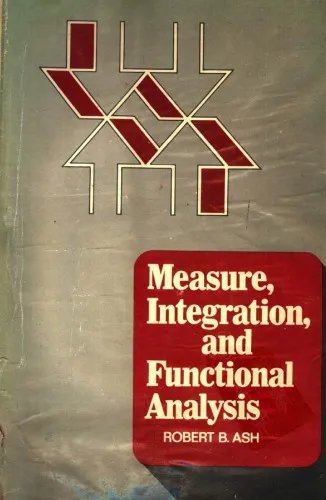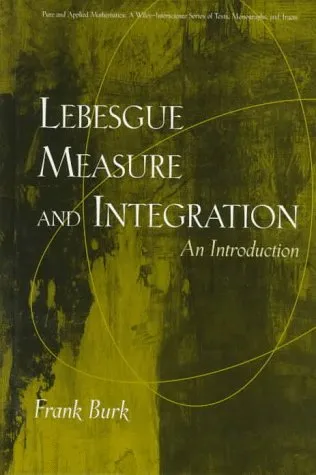Lebesgue Measure and Integration: An Introduction (Pure and Applied Mathematics)
4.5
Reviews from our users

You Can Ask your questions from this book's AI after Login
Each download or ask from book AI costs 2 points. To earn more free points, please visit the Points Guide Page and complete some valuable actions.Related Refrences:
Introduction to "Lebesgue Measure and Integration: An Introduction (Pure and Applied Mathematics)"
Welcome to an exploration of one of the most foundational texts in mathematical analysis. "Lebesgue Measure and Integration: An Introduction" offers a comprehensive yet accessible entry point into the study of Lebesgue measure theory and its application to integration. This book serves as an indispensable resource for students, educators, and professionals seeking an in-depth understanding of the concepts, tools, and applications of measure theory. With a commitment to clarity and precision, the text builds a strong bridge between mathematical abstraction and practical applications in pure and applied mathematics.
Summary of the Book
Written with accessibility and depth in mind, this book provides a systematic introduction to the concepts of measure and integration following the work of Henri Lebesgue. Starting with an intuitive exploration of the limitations of Riemann integration, the text masterfully transitions into the rigorous foundation of Lebesgue's theory. Core concepts like sigma-algebras, measurable functions, and Lebesgue measurable sets are meticulously developed, ensuring that readers gain a solid understanding of the framework underlying modern analysis.
The book also delves into the construction of the Lebesgue measure, demonstrating the central role it plays in enabling a broader class of functions to be integrated. Once the groundwork is laid, the book carefully explores the properties and techniques of Lebesgue integration, including convergence theorems such as the Monotone Convergence Theorem and Fatou's Lemma. Applications to function spaces, probability, and applied mathematics are interwoven throughout, reinforcing the utility of the theory in solving practical problems.
While the primary focus remains on educating the reader in the foundational elements of measure and integration, the book also exposes readers to advanced topics, such as Fubini's theorem and an introduction to product measures, to prepare them for further studies in analysis. By the time readers finish this text, they will have gained not only theoretical expertise but also powerful tools for approaching real-world mathematical challenges.
Key Takeaways
- Historical Context: Understand the motivations for developing Lebesgue integration and how it advances classical integration methods.
- Rigorous Foundations: Develop a conceptual and technical mastery of fundamental ideas like sigma-algebras, measurability, and Lebesgue's measure.
- Core Theorems: Learn and apply essential tools such as the Dominated Convergence Theorem, the Lebesgue Differentiation Theorem, and others.
- Broad Applications: Explore how Lebesgue theory impacts areas like harmonic analysis, functional analysis, and probability theory.
- Accessible to Beginners: Benefit from a clear presentation that introduces key concepts progressively, ensuring accessibility to readers with varying levels of mathematical background.
Famous Quotes from the Book
“Classical integration works well for continuous functions and a small number of discontinuities, but runs into challenges when faced with the complexities of modern mathematical analysis. Lebesgue integration addresses these shortcomings elegantly.”
“The concept of measure allows us to assign a ‘size’ to sets in a way far more versatile than traditional notions, laying the groundwork for modern probability and analysis.”
“This book emphasizes not only the mathematical tools at your disposal but the logical rigor that makes measure theory a cornerstone of analysis.”
Why This Book Matters
Mathematics is often described as the language of the universe, and "Lebesgue Measure and Integration: An Introduction" equips readers with the tools to speak one of its most powerful dialects. The transition from Riemann to Lebesgue integration represents a paradigm shift, one that has enabled breakthroughs in areas as diverse as quantum mechanics, signal processing, and modern probability theory.
By focusing on the essential theoretical underpinnings of Lebesgue measure and integration, this book empowers its readers to tackle problems that would be unreachable with less robust mathematical tools. Its ability to balance rigor with clarity ensures that readers are not only introduced to abstract ideas but are also equipped to apply them to practical and theoretical scenarios.
Whether you're a student embarking on your first journey into real analysis or a professional seeking to deepen your expertise, this book provides an invaluable foundation. Its systematic approach, comprehensive coverage, and accessible style make it a crucial addition to the bookshelf of anyone passionate about mathematics.
Free Direct Download
You Can Download this book after Login
Accessing books through legal platforms and public libraries not only supports the rights of authors and publishers but also contributes to the sustainability of reading culture. Before downloading, please take a moment to consider these options.
Find this book on other platforms:
WorldCat helps you find books in libraries worldwide.
See ratings, reviews, and discussions on Goodreads.
Find and buy rare or used books on AbeBooks.
1583
بازدید4.5
امتیاز0
نظر98%
رضایتReviews:
4.5
Based on 0 users review
Questions & Answers
Ask questions about this book or help others by answering
No questions yet. Be the first to ask!
